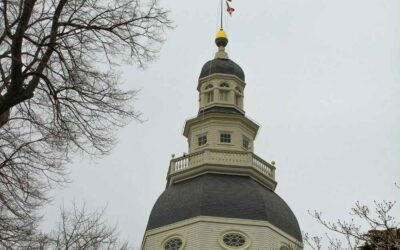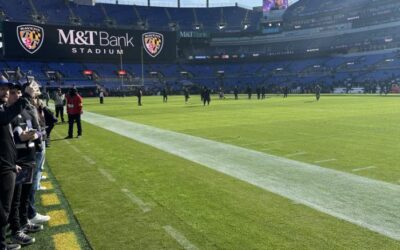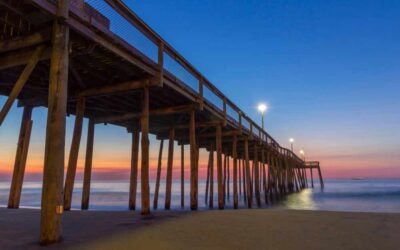Last Friday, prior to the start of the Memorial Day weekend, Governor Hogan made a final announcement regarding which bills he was vetoing, and which he was letting pass without his signature, officially drawing to close the 2019 Maryland Legislative Session.
This year’s session was an exciting and somber one, starting off with a large class of freshman members in the House and Senate, and ending with the death of the longest-serving Speaker of the House, Michael Busch, followed by the election of Delegate Adrienne Jones as the new Speaker – the first woman and the first African-American to hold the position in Maryland’s long history.
For the Old Line Government Affairs team, the 2019 session was hard-fought on behalf of its clients, and ended with many successes as well as groundwork laid towards success in the coming years.
We supported bills and proposed amendments to bills that benefits procurement qualifications and opportunities for Maryland small businesses.
HB284/SB983 – Procurement – Small Businesses and Minority Businesses – Qualification and Certification
We proposed amendments that were adopted with the final bill signed into law, that clarified how a federally-certified small business could qualify as a Maryland-certified small business.
HB1234 – Procurement – Correctional Facilities – Ex-Offenders
We opposed this bill that was ultimately withdrawn- it would have required contractors to prove that 30% of its employees were ex-offenders in order to qualify to provide goods or services at a correctional facility.
SB12 – Capital Projects – Inclusion of Public Art
We supported this bill that was passed and signed into law, requiring the State, to the extent practicable, to include public art in all construction projects and major renovations funded either entirely with State funds or with a combination of at least 50% State funds and funds from private entities.
SB51 – Maryland Heritage Area Authority – Target Investment Zones – Repeal
We supported this bill that was passed and signed into law, that repeals limitations that require the Maryland Heritage Areas Authority (MHAA) to make acquisition and development grants only for projects in a “target investment zone” within a certified heritage area. The new law provides MHAA with greater flexibility in making acquisition and development grants, which will ultimately benefit local governments, as eligible grant recipients.
SB254 – Baltimore City Community College – Procurement Authority
We opposed this bill that was given an unfavorable report. It would have exempted Baltimore City Community College (BCCC) from most provisions of State procurement law and from State oversight of its capital improvement program and information technology (IT) policies, standards, and procurement. Exemptions from the state procurement law protections erode the intent of Maryland’s Procurement Law.
SB741/HB1403 – Maryland Historical Trust – Properties Subject to Historic Preservation Easements – Waiver Process
We proposed an amendment that was accepted and included in the bill that was passed and signed into law by the Governor that requires the Secretary of Planning to contract with a consultant to conduct a study on the adaptive reuse of historic properties located within the State that are or were owned by the State or the federal government.
We defeated proposed legislation that threatened the security of HIPPA protected health information.
HB892/SB903 – Health Information – Commercial Sale
We testified against, and soundly defeated bills in the House and Senate, that would have jeopardized and countered existing federal HIPPA and patient confidentiality laws.
We protected Maryland’s green industry.
HB275/SB270 – Pesticides – Use of Chlorpyrifos – Commercial Sale
We testified, lobbied and mobilized a statewide grassroots effort which defeated bills that would have prohibited a person from using chlorpyrifos in the State, including insecticides that contain chlorpyrifos or seeds that have been treated with chlorpyrifos. Chlorpyrifos is a federally approved pesticide for agricultural and commercial applications, and is an important tool which is used sparingly and alternately with other pesticides.
We laid groundwork towards the transition to 5G wireless technology, which is critical to Maryland’s future to attract and retain businesses.
HB654/SB937 – Wireless Facilities – Installation and Regulation
We testified and lobbied the house and senate committees in support of legislation regulating the implementation of a 5G network. The transition to 5G is massive and complicated, therefore, the committees decided to hold further hearings throughout the interim in preparation for the 2020 legislative session.
We increased the use of clean energy, ultimately increasing jobs in this industry.
SB516 – Clean Energy Jobs Act
We successfully reintroduced hydro-electric power back into the renewable portfolio standard (RPS) until 2020 – this legislation gradually expands the requirement that purchasers of energy (such as utilities) buy 50% of their power from renewable sources.
We successfully avoided an increase in restrictive regulation against the insurance and risk management industries.
SB786/HB1127 – Financial Consumer Protection Act of 2019
We lobbied against this bill that ultimately received an unfavorable vote, preventing increased regulation of the insurance industry, assigning insurance firms fiduciary responsibility similar to wealth management and financial planners.
HB249 – Condominiums-Responsibility for Property Insurance Deductibles
We successfully secured an amendment to this bill that did not make it out of the Senate Judicial Proceedings Committee, however, we expect it to return next year in the amended version that passed out of the House. The bill increases the $5,000 limit of a condominium associations’ deductible to $10,000.
SB102 Courts – Direct Action Against Automobile Insurer
We opposed this bill that was assigned to two committees but never received a vote. The bill would have ultimately increased the cost of insurance for Marylanders because it would have made the insurer liable to third-party claimants.
HB602/SB523– Insurance – Investments of Insurers Other Than Life Insurers – Real Estate
We researched, drafted, and advocated toward successful passage of this bill, which allows property and casualty insurers to invest in real estate in a way similar to what life insurers are allowed to do.
The 2019 Maryland Legislative Session resulted in the passing of some groundbreaking legislation including an increase in minimum wage, caps on prescription drug prices, a ban of plastic foam cups and containers, the availability of cannabis edibles by prescription, and an increase in the age to buy tobacco products. Several pieces of key proposed legislation that resulted in rigorous debate but did not pass will likely return in 2020.
For more information about legislation to watch in 2020, or to learn more about how Old Line Government Affairs can help you protect your business or industry, contact our Director of Business Development and Client Services, Candace Gill, or visit us at www.oldlinelobbying.com.




